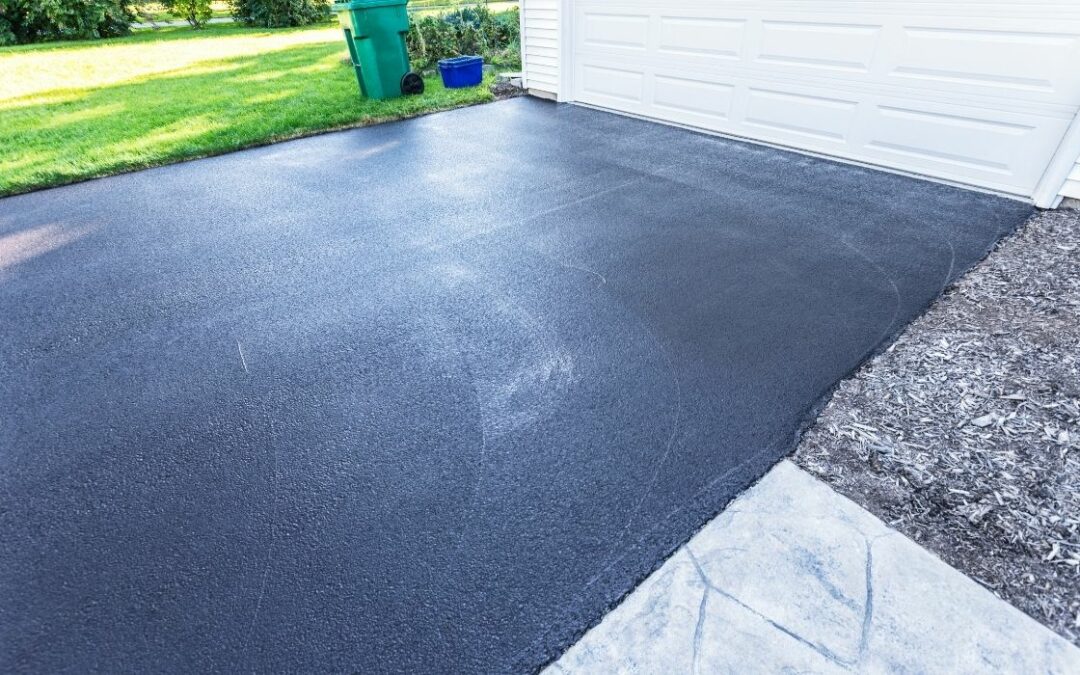Understanding Tilted Parking: How Asphalt Sealing Enhances Industrial Lots
Understanding Tilted Parking: How Asphalt Sealing Enhances Industrial Lots
Blog Article
Hot Mix Asphalt: A Lasting Service for Pavement
Hot Mix Asphalt (HMA) has actually emerged as a leading lasting choice for pavement remedies, providing a myriad of ingenious modern technologies and ecological benefits. Its ability to reuse materials and lower power consumption provides a compelling case for its fostering in road building projects. Additionally, the long-term performance and toughness of HMA make it a favored choice for facilities development. As the need for environmentally friendly construction practices expands, checking out the subtleties of HMA's sustainability can offer important understandings into the future of pavement options.
Ecological Benefits of Warm Mix Asphalt
.png)
Additionally, Warm Mix Asphalt helps to reduce city heat island impacts. Its dark shade takes in sunshine, lowering the amount of warmth showed back right into the environment contrasted to lighter-colored sidewalks. This can lower ambient temperature levels in urban areas, reducing the demand for a/c and inevitably lowering power consumption.
In addition, Warm Mix Asphalt adds to enhanced stormwater administration. Its porous nature enables water to charge and penetrate the sidewalk groundwater supplies, lowering drainage and the risk of flooding. These environmental benefits make Warm Mix Asphalt a sustainable option for leading freeways and roads.
Power Effectiveness in HMA Manufacturing
Is energy efficiency a crucial consider the manufacturing of Warm Mix Asphalt (HMA)? Definitely. Power plays a significant duty in the manufacturing of HMA, affecting both price and environmental sustainability. One crucial element of energy efficiency in HMA production is using warm mix asphalt (WMA) modern technologies (angled parking). WMA enables the mixing and placement of asphalt at reduced temperature levels contrasted to typical warm mix asphalt, leading to lowered energy usage throughout production. This procedure not only lowers fuel usage yet also reduces greenhouse gas discharges, making it a much more eco pleasant alternative.
Additionally, improvements in plant modern technologies have led to even more energy-efficient HMA manufacturing procedures. By optimizing power usage in HMA manufacturing, the sector can decrease its carbon impact while preserving top notch sidewalk materials.
Recyclability of Warm Mix Asphalt
The recyclability of Warm Mix Asphalt (HMA) is a critical element of its sustainability and long-term ecological impact. HMA is among one of the most recycled products in the United States, with over 100 million bunches of reclaimed asphalt link sidewalk (RAP) being recycled every year in brand-new pavement building. Recycling HMA offers numerous environmental benefits, such as minimizing the demand for virgin products, lowering energy consumption during production, and decreasing the quantity of waste sent out to land fills.
The process of reusing HMA includes crushing the existing sidewalk, crushing it into smaller items, and mixing it with brand-new aggregate and asphalt binder to create a recycled mix. This recycled mix can often do as well as and even better than conventional HMA, while needing fewer basic materials and generating reduced greenhouse gas emissions. By integrating RAP right into brand-new sidewalk projects, roadway agencies can preserve natural sources, minimize expenses, and lessen the environmental footprint of roadway construction and upkeep activities. On the whole, the recyclability of get redirected here HMA plays a substantial duty in advertising lasting techniques within the sidewalk industry.

Long-Term Performance of HMA
Asphalt sidewalks show durability and strength over an extensive duration, showing the long-term performance of Warm Mix Asphalt (HMA) In addition, advancements in HMA innovation, such as the use of polymer-modified binders and warm mix asphalt, have actually better improved the toughness and long life of HMA pavements. By focusing on top quality building and upkeep methods, HMA continues to prove itself as a economical and lasting solution for lasting sidewalk infrastructure.

HMA: Sturdiness and Sustainability
Demonstrating both durability and sustainability, Warm Mix Asphalt (HMA) has become a keystone in the building of lasting pavement facilities - commercial parking lot paving. HMA's toughness stems from its ability to hold up against heavy tons, severe weather problems, and high traffic volumes, making it a reliable choice for streets, freeways, and airport paths. The structure of HMA, which usually includes accumulations, binder, and filler, plays a vital duty in boosting its long life and resistance to damage
Additionally, HMA's sustainability depends on its recyclability and energy-efficient manufacturing process. The ability to reuse redeemed asphalt pavement (RAP) in brand-new HMA blends lowers the need for virgin products and lessens the ecological influence of sidewalk construction and maintenance. Furthermore, the energy efficiency of generating HMA hinges on its lower mixing temperatures compared to various other pavement products, resulting in reduced power usage and greenhouse gas exhausts.
Final Thought
In final thought, hot mix asphalt (HMA) provides a lasting option for pavement with its ecologically friendly attributes. HMA's recyclability, power efficiency weblink in manufacturing, and lasting longevity make it an environmentally friendly selection for roadway building and construction.
HMA is one of the most recycled products in the United States, with over 100 million loads of redeemed asphalt sidewalk (RAP) being recycled annually in brand-new pavement construction.The procedure of reusing HMA entails grating the existing sidewalk, crushing it into smaller items, and mixing it with brand-new accumulation and asphalt binder to develop a recycled mix.Asphalt sidewalks demonstrate sturdiness and resilience over a prolonged duration, showing the long-lasting performance of Hot Mix Asphalt (HMA) In addition, developments in HMA technology, such as the usage of polymer-modified binders and warm mix asphalt, have actually even more improved the sturdiness and longevity of HMA sidewalks. The ability to reuse recovered asphalt sidewalk (RAP) in new HMA mixtures reduces the need for virgin materials and lessens the ecological effect of sidewalk construction and upkeep.
Report this page